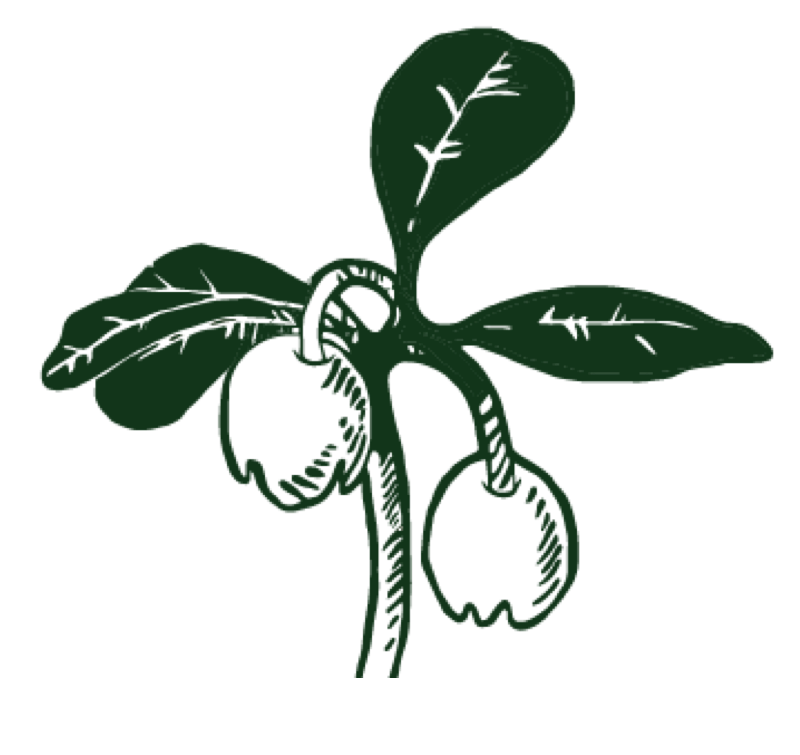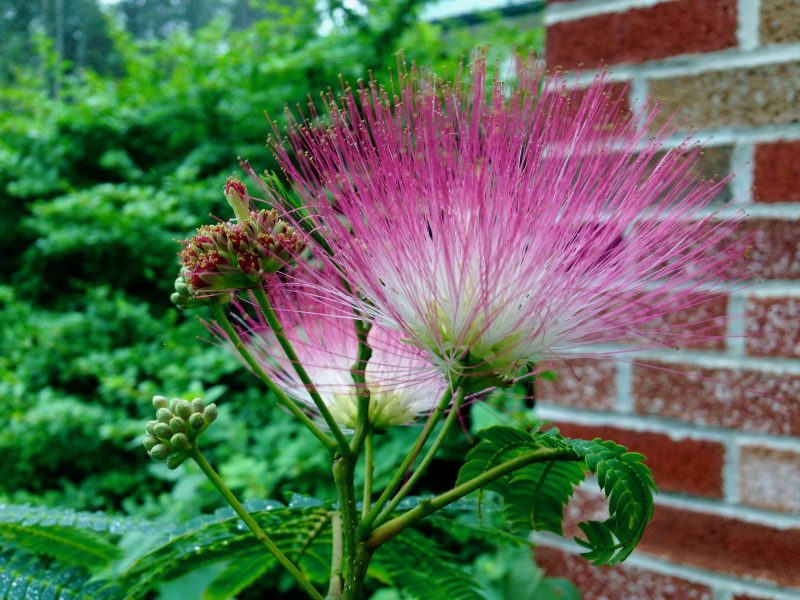Winter season symbolizes rest and restoration, a time to hibernate, eat warm food, and work on creative projects. Yet the reality isn’t always so cozy. Cold temps, dry air, and indoor living can make us more susceptible to mood funks and everyday infections. Our modern lives don’t always slow down for winter, either. School, work – not to mention winter festivities – prevent us from the season of winter nourishment that we instinctively crave. Fortunately, there's much we can do to alleviate the seasonal blues.
Let the Sun Shine In
Dwindling daylight and dreary weather leave your mood dragging during these darkest months of the year, whether you have full-blown Seasonal Affective Disorder (SAD) or simply the winter blues. Holiday stress and the reminder of loved ones lost can also be rough. Boost your exercise routine, get outdoors in the morning or midday (even if it’s ugly), and consider light therapy and full-spectrum light bulbs. Also address potential nutrient deficiencies. Low levels of vitamin D, iron, B vitamins, magnesium, and omega-3 fatty acids can make you more prone to depression. (Only supplement iron with supervision in confirmed deficiency. Excessive amounts may have side effects for heart health.)
Mood is quite complex, with many different etiologies and underlying root causes that will need to be addressed. In some cases of depression, especially major depression, medications might be your best option. But for many, especially with mild depression or seasonal blues, natural remedies may work well. If you're on medications, you can still incorporate several natural approaches, but you should work with a skilled herbalist or naturopathic doctor to help choose the best remedies for you and avoid herb-drug interactions. The support of a therapist or counselor may also be helpful.
If you know winter is a tough time of year for you, or you’re starting to see signs of funk, consider the following herbs.
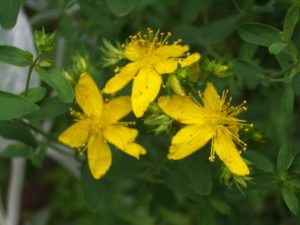
St. John’s Wort (Hypericum perforatum)
St. John's wort embodies the sun’s energy. It blooms during the longest, sunniest days of the year in the sunniest spots. The more heat and sun it gets, the stronger its medicine becomes. St. John’s wort buds is most famous for its antidepressant SSRI-like effect, gradually boosting serotonin levels in the brain. Traditional herbalism honors it as a nervine (a nervous system tonic), antiviral, and liver mover. Hundreds of studies support its use for mild to moderate depression, SAD, anxiety, premenstrual syndrome, insomnia, and menopausal mood issues. Like the pharmaceutical counterparts, it can take several weeks (even months) at a relatively high dose for the effects to build, although some people notice an immediate benefit. Quality also varies on the marketplace, so many give up on this herb too quickly. Fresh buds and flowers are much stronger than the whole or dried plant. Consider a fresh tincture (it should be deep red in color), carbon dioxide extract capsules, or standardized capsules, following the label directions. It’s generally well-tolerated, but it does interact with many pharmaceuticals. In rare cases, it can make you more sensitive to the sun (less of an issue in winter) or raise stimulating thyroid hormone (TSH) levels. St. John’s wort can lose potency after a few years, even in tincture form.
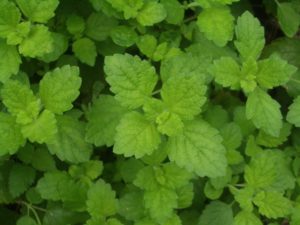
Lemon Balm (Melissa officinalis)
Lemon balm is a common garden herb with a bright citrus fragrance that has mood-boosting properties when inhaled or ingested. Studies have found that it relieves anxiety while boosting cognition. It is traditionally used to gladden the heart and boost the mood, with preliminary animal studies supporting these actions. It’s one of the most kid-friendly mood herbs, too. Herbalist David Winston suggests that combining it with St. John’s wort makes to moderately useful plants profoundly more effective. Like St. John’s wort, lemon balm is more potent as a fresh plant extract, such as a tincture, using it within a few years of processing. This can be made with made with happy aerial parts whether or not it is in flower and is quite easy to make during the growing season with plants from your yard. (Shove as much chopped leaves into a jar as you can, cover with high-proof vodka, brandy, or grain alcohol. Let sit one month, then strain.) Lemon balm also tends to improve digestion, aid sleep, and quell hyperthyroid stress and is well-tolerated by most people. Combining it with anti-depressants, anti-anxiety medications, and some types of pain pills like opioids and muscle relaxers may increase the sedative action, so gradually introduce lemon balm if you take these medications to see how it affects you. It is unlikely, but possible, that lemon balm could negatively affect those with hypothyroid disease.
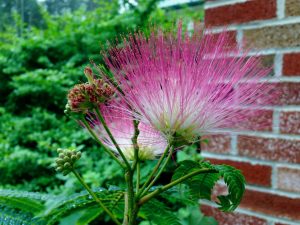
Mimosa (Albizia julibrissin)
Mimosa bark and flowers – fresh or freshly dried – have profound antidepressant effects well known in Traditional Chinese medicine but still being discovered in the United States. Yet, this gorgeous tree with pink powder puff flowers grows like a weed across the Bible Belt and in California where it is also known as “silk tree,” “sensitive tree,” and the “tree of collective happiness.” Herbalist Michael Tierra has helped make this tree’s benefits more widely known in the west. In spite of mimosa’s long history of use for for mood, just a few animal studies have been done, and they do support this use. In my own practice, I find fresh and freshly dried bark tinctures of mimosa fast-acting and among my most reliable herbs for the depression and anxiety without over-sedation. A few widely available herbal companies sell the tincture, and even fewer sell capsules. You can make your own tincture if you have access to the tree. The bark is stronger and best harvested in fall or spring, though many herbalists also like to tincture the beautiful flowers or add them to the bark. It tends to work more quickly than St. John’s wort, too. It appears to be very safe, but use caution when combining it with pharmaceutical antidepressants and mood drugs - very little data is available on herb-drug interactions. A few companies sell the tincture under the name "Albizia."
Learn More
This topic and many more mood-supportive herbs are covered at length in my online webinar class. It's just $20 for registration, which includes detailed, annotated notes and a webinar video recording that you can watch as many times as you'd like. Click here to register.
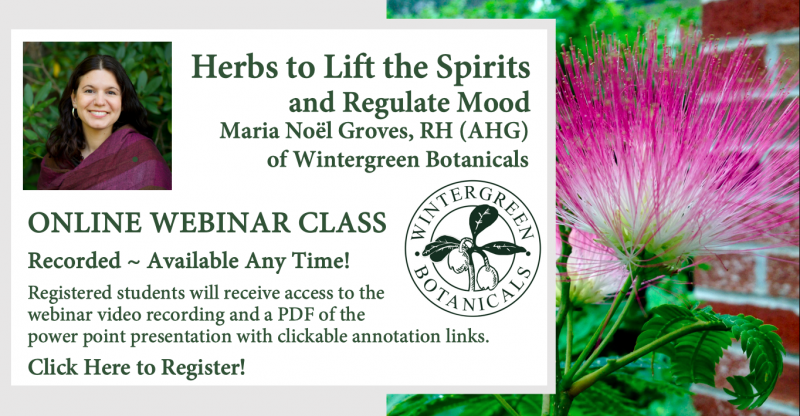
Clinical herbalist Maria Noël Groves sees clients and teaches classes at Wintergreen Botanicals Herbal Clinic & Education Center in Allenstown, New Hampshire.
The statements made on this blog have not been evaluated by the FDA and are not intended to diagnose, prescribe, recommend, or offer medical advice. Please see your health care practitioner for help regarding choices and to avoid herb-drug interactions.
This short article originally appeared in a slightly different format in Herb Quarterly magazine.
